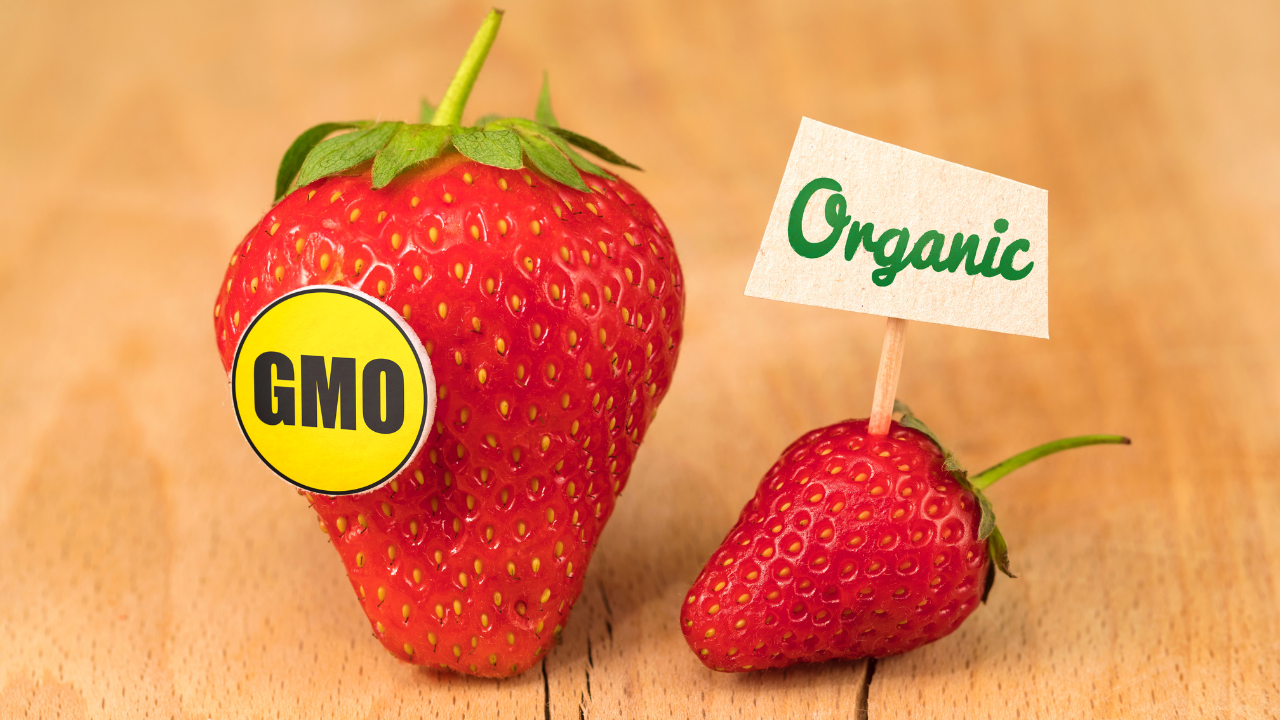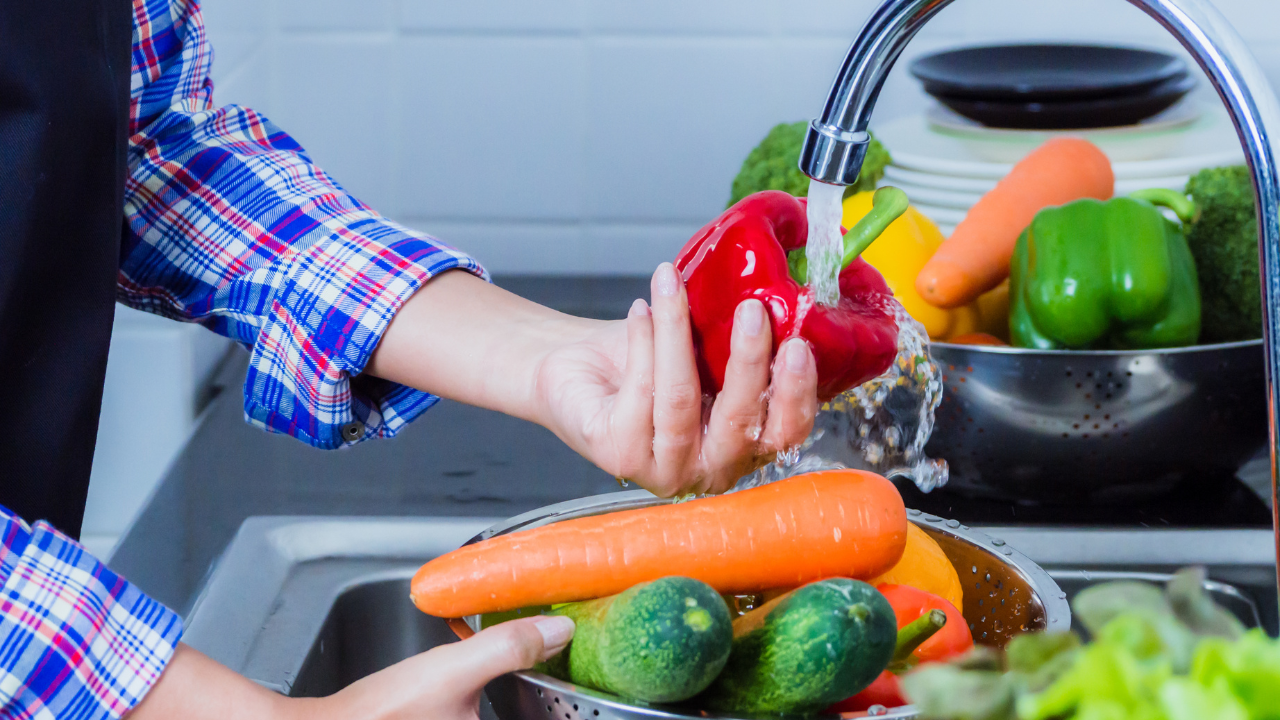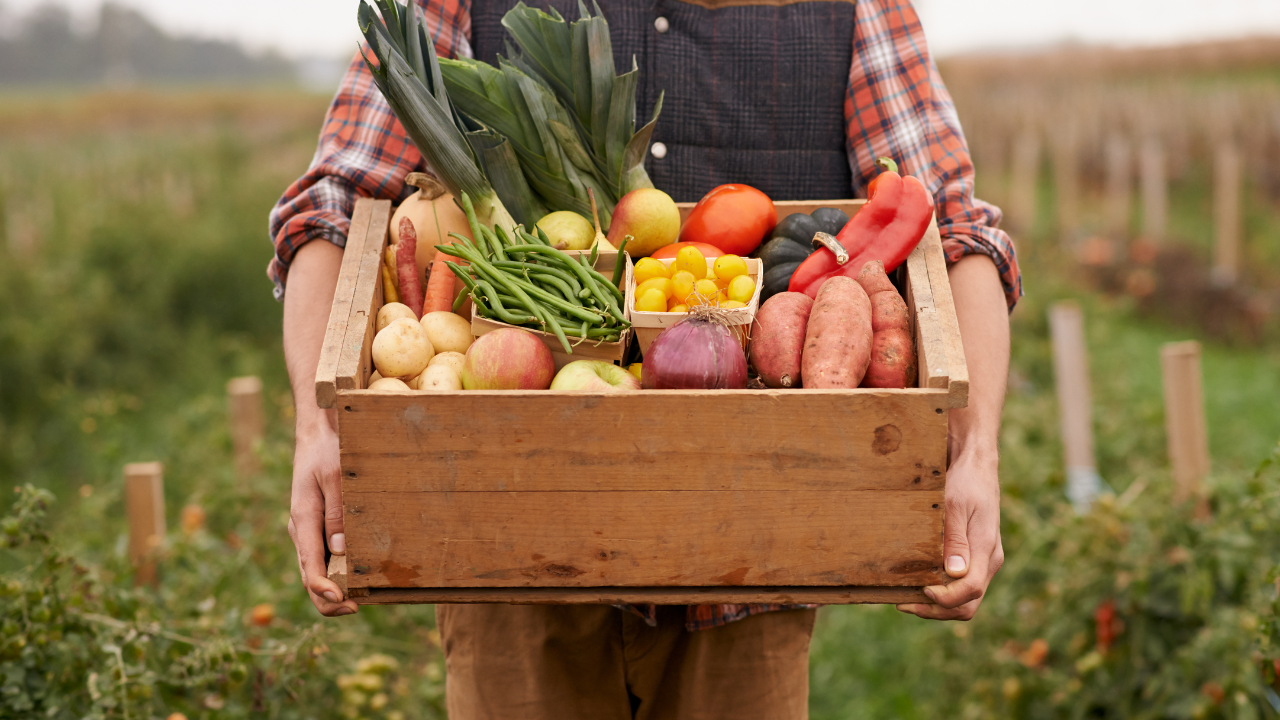Organic Food: Worth the Cost?
As the organic food aisle in our supermarkets continues to grow and create shopping dilemmas for customers, you might ask yourself: Is buying organic food worth the extra cost?
I’m often asked this question and it’s a tricky question to answer, but here are my thoughts.
Let’s define organic. The term “organic” refers to the way agricultural food products are grown and processed (1). Organic foods are produced without synthetic fertilizers and pesticides, growth hormones, and antibiotics (regulation conspiracies aside). Organic foods cannot contain GMO ingredients or be produced from GMO seeds.
There have been many studies comparing conventional vs. organic produce with conflicting results. Let’s take a look at some of these comparisons.
Comparing Nutrient Density
Studies looking at the nutritient density of organic vs conventional produce have found very small, and likely not significant differences in nutrient levels.
For instance, a comprehensive review that evaluated 250 studies comparing the nutrients in organic vs inorganic foods and the associated health outcomes found very little differences overall. They did show to find slightly higher phosphorus levels in organic foods and higher omega-3 fatty acids in organic milk, chicken and eggs, but the differences were unlikely to have any significant metabolic effect on consumers (2).
Additional systematic reviews (aka studies that look at a large body of research) on studies done on humans and nutrient content of organically grown versus conventionally grown foods also showed a lack of evidence that supports that organic foods are significantly more nutritious (3,4).
In general, it is safe to say that both organic and conventionally grown foods are fairly equivalent when it comes to nutrient density.
Comparing Contaminants
Organic produce has indeed been found to contain 30% less pesticide residues than conventional products. However, the significance of this on human health is unclear as the level of pesticides left on conventional foods are still below government established guidelines deemed safe for consumption.
On the other hand, risks from natural toxins like harmful bacteria may actually outweigh the risks from chronic low-level amounts of pesticides. So making sure your food is fresh and prepared carefully is, in general, more important to health and can prevent more serious issues like food poisoning - which has been found to be equally likely in both types of products (5).
Comparing Environmental Impact
Organic farmers still use pesticides; just pesticides derived from natural sources. Some studies have found that these “natural” pesticides contain compounds that can still adversely impact the environment. On the one hand, risk of groundwater contamination is lower with organic produce, and studies have found that long-term effects of organic farming actually were better at reducing soil erosion and maintaining soil productivity (6).
However, organic farms typically are less effective and require more land compared to conventional farming systems, which may result in more widespread deforestation and biodiversity loss (7).
In addition, there is no clear winner when it comes to greenhouse gas emissions, across all food types (8).
Summary
In the end, it comes down to personal choice. When it comes to choosing organic, there are a lot of factors to consider and budget is one of them. Personally, I think it’s best to prioritize local foods because I know they are more fresh & likely to be nutrient dense since they are grown seasonally. Buying local food also allows you to help support your local community farmers and help reduce environmental costs associated with transporting food not grown in your area.
For more information, I recommend checking the Environmental Working Group for the Clean 15 and Dirty Dozen to help budget and choose what may be worth buying organically, if that is in your preference.
But remember - the most important thing we can do for our health is to consume more fresh produce, organic or not. Actively learning more about where your food comes from and how it’s grown is the ultimate first step in making the right choice for yourself, which hopefully this post inspired!
For more gut-friendly and fitness meal planning tips, be sure to follow along with me on instagram at leighmerotto_rd.
P.S. Want simple meal ideas that you can add variety to each week and add to your rotation?
Check out my meal prep plan collection - handpicked recipes by a Gut-Health & Fitness Dietitian to optimize your health journey!

BE SURE TO FOLLOW ME HERE
References:
1. https://www.helpguide.org/articles/healthy-eating/organic-foods.htm
2. https://www.sciencedirect.com/science/article/abs/pii/S0308814609003513
3. https://www.acpjournals.org/doi/10.7326/0003-4819-157-5-201209040-00007?articleid=1355685&
4. https://academic.oup.com/ajcn/article/90/3/680/4597089
6. https://www.nature.com/articles/330370a0
7. https://www.nature.com/articles/nature11069?page=14
8. https://ourworldindata.org/is-organic-agriculture-better-for-the-environment).





